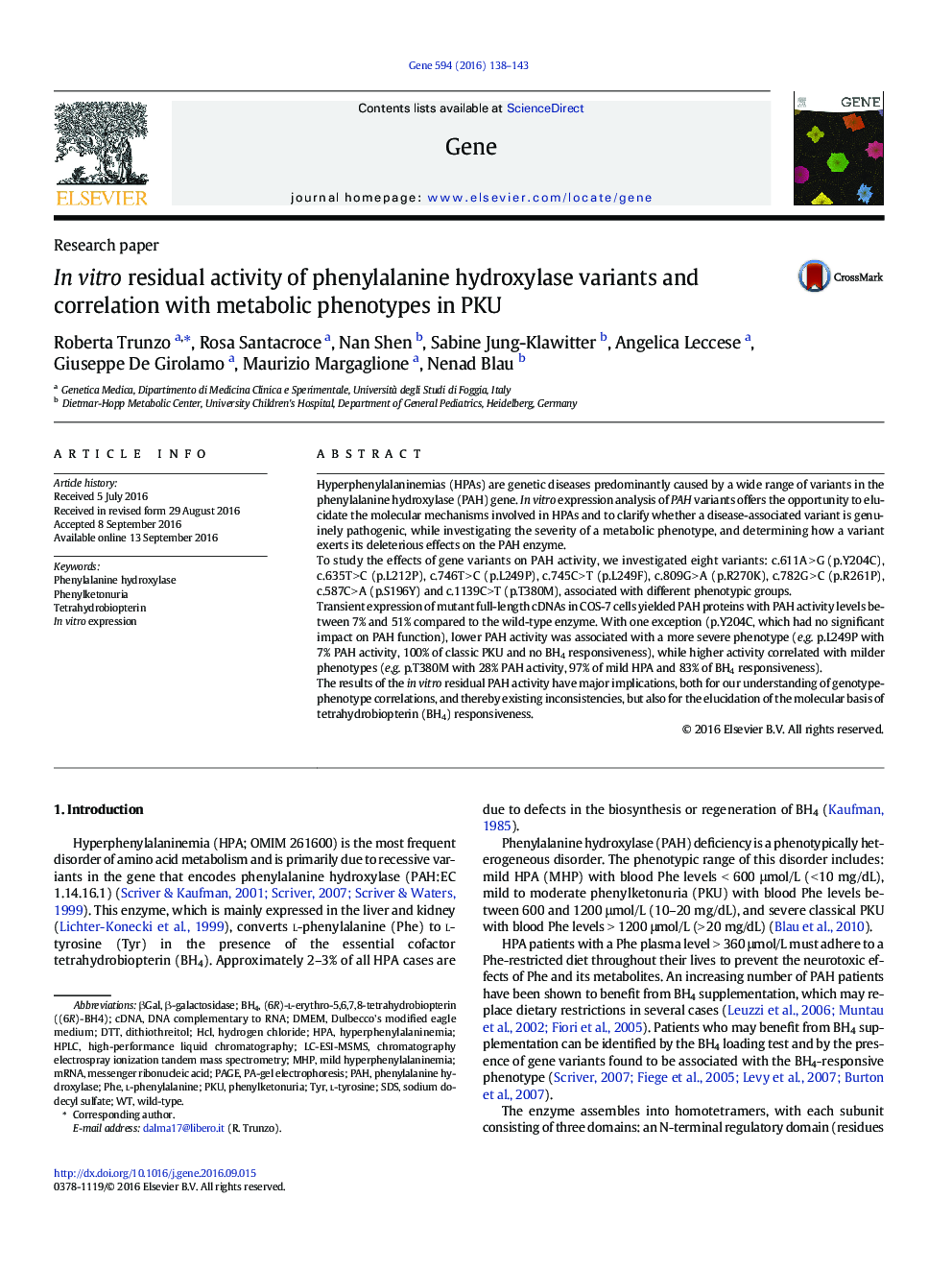| Article ID | Journal | Published Year | Pages | File Type |
|---|---|---|---|---|
| 2814724 | Gene | 2016 | 6 Pages |
•We reproduced a full-length wild-type protein and eight PAH variants, p.Y204C, p.L212P, p.L249P, p.L249F, p.R270K, p.R261P, p.S196Y and p.T380M.•PAH activities were compared with the phenotypes and BH4 responsiveness from the BIOPKU database.•This expression study analyzed PAH mutations and structure analyses of mutant PAH proteins were proposed.•These information will allow the implementation of an optimal and individually tailored treatment.
Hyperphenylalaninemias (HPAs) are genetic diseases predominantly caused by a wide range of variants in the phenylalanine hydroxylase (PAH) gene. In vitro expression analysis of PAH variants offers the opportunity to elucidate the molecular mechanisms involved in HPAs and to clarify whether a disease-associated variant is genuinely pathogenic, while investigating the severity of a metabolic phenotype, and determining how a variant exerts its deleterious effects on the PAH enzyme.To study the effects of gene variants on PAH activity, we investigated eight variants: c.611A > G (p.Y204C), c.635T > C (p.L212P), c.746T > C (p.L249P), c.745C > T (p.L249F), c.809G > A (p.R270K), c.782G > C (p.R261P), c.587C > A (p.S196Y) and c.1139C > T (p.T380M), associated with different phenotypic groups.Transient expression of mutant full-length cDNAs in COS-7 cells yielded PAH proteins with PAH activity levels between 7% and 51% compared to the wild-type enzyme. With one exception (p.Y204C, which had no significant impact on PAH function), lower PAH activity was associated with a more severe phenotype (e.g. p.L249P with 7% PAH activity, 100% of classic PKU and no BH4 responsiveness), while higher activity correlated with milder phenotypes (e.g. p.T380M with 28% PAH activity, 97% of mild HPA and 83% of BH4 responsiveness).The results of the in vitro residual PAH activity have major implications, both for our understanding of genotype-phenotype correlations, and thereby existing inconsistencies, but also for the elucidation of the molecular basis of tetrahydrobiopterin (BH4) responsiveness.
